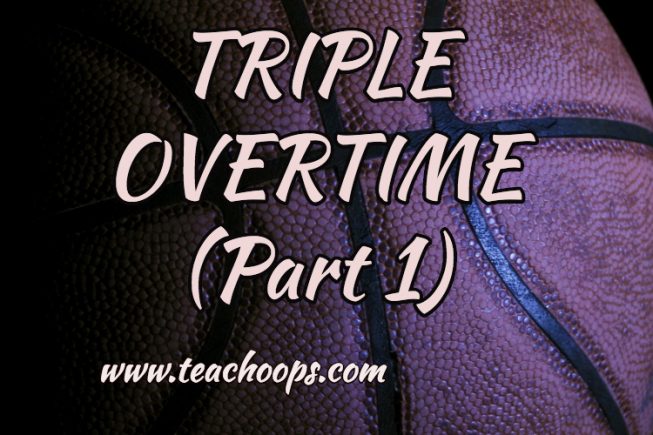
by 4159987 | Sep 12, 2018 | Uncategorized
It’s late in the 4th quarter, the shot clock is turned off, the game is tied, and your team has the ball. We’ve all been there before, as either a coach, player, or both. Standard operating procedure is usually to call an immediate time out if available. This can happen after a rebound or a turnover. This is usually the moment when many coaches exhale with the comfort that overtime is the worst possible outcome, barring any disastrous miscues. Unfortunately, this standard operating procedure that so many coaches lean on. This quite often leads to the same standard operating results that so many coaches regretfully look back on.
Triple Overtime
This misplaced trust in the safety of overtime can usually be traced back to three crucial parts of the end of regulation. The final minute, the final possession, and the final play. The team that consistently makes the most of these 3 parts will always have the best opportunity to win in regulation and avoid overtime (and especially triple overtime). First, it’s important to ignore the general notion that a tie game in the final minute is a time to be conservative. In actuality, it’s the perfect time to be aggressive. Because it comes with the guarantee that any failed offensive possession. At worst, it can only result in a 3 point maximum deficit on the other end. That’s excluding the rare exception of giving up a 4 point play.
With this in mind, the smartest way to apply aggression in the final minute, is to attack the basket. This eliminates the pressure of having to connect from outside in such a hostile shooting environment. It also potentially places your opponent in serious foul trouble and provide the opportunity for making the possible game winning free-throws. Bottom line, the final minute of any tie game is a time to be aggressive an. Avoid overtime at all costs. In fact, the final minute of regulation should always be approached as if overtime is not an option.
Motivation
If a win or a tie were the only two possible outcomes, then most teams would be much more aggressive in the final minute of regulation. Especially at the end of the regular season, when many teams are fighting for every possible victory to make the playoffs. Ironically, most of those teams would not be in that position if they played that aggressive in the final minute of every game. It’s all about having the proper perspective for the current moment. Because many coaches and players instead have the “next” mentality. They’ll say things like this. “We’ll get it next play,” “next quarter”, or “next game.” Although attempting to be positive, this way of thinking doesn’t put enough emphasis on the current moment. In basketball and in life, that’s the only moment that should ever matter.
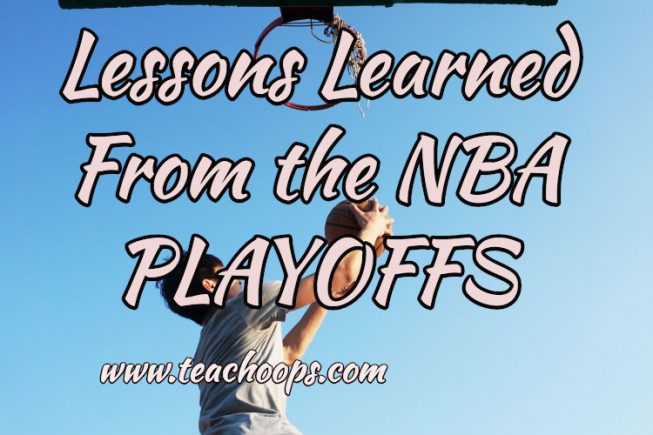
by 4159987 | Jun 19, 2018 | Uncategorized
“Lessons Learned From The 2018 NBA Playoffs”
*S.E.O. Words: Intensity, Desperation, Motivation
Year after year, the NBA Playoffs offer us all a front row seat to the game of basketball being played at it’s highest level. However, even the top seeded teams can often fall short of that level when it comes to playing with maximum effort. In any given game, most NBA Teams can be trusted to play their hardest, but in a “best of 7” series, there are far more opportunities for human nature to sink in. Following a loss, the most common NBA Playoff Team adjustment is usually not schematic, but simply to play with more energy and determination.
Coaches have used several different buzz words over the years to describe either how an abundance of effort led to victory, or how a lack of effort led to defeat. In the past, the most frequently used buzz word was “desperation”, which has graced the narrative of many post-game press conferences and off-day interviews. However, in 2018, the new buzz word appears to be “force”, which ironically has been used most by Head Coach Steve Kerr of the Defending Champion Golden State Warriors. Regardless of whether “desperation” or “force” best describes maximum effort. What’s most important is why it alludes a team to begin with, and how to get it back when it does.
Overconfidence is the most common contributing factor, and also the most damaging. Overlooking any opponent brings about consequences that often cannot be reversed. Coaches of all levels can learn a valuable lesson from this years NCAA Tournament, in which a #16 seed beat a #1 seed for the first time ever. The concept of “rest vs rust” is also a major factor, when a team is affected by having either too much rest, or not enough. Lastly, is a lack of 3-dimensional preparation. Most preparation is based on 1-D and 2-D tendencies, such as preparing for an opponent that plays fast, or tries to dominate the paint. An example of 3-D preparation would be discovering that your opponent has a hidden motivation, such as a team member dealing with a tragedy, or perhaps a hidden revenge angle. That hidden motivation could make this game extra emotional for them, causing them to play with maximum effort and increased intensity. That could be huge problem if you as a coach are unaware of it, and your players enter the game at only a standard motivation level. Bottom line, there are infinite reasons why a team can lack effort in any game, at anytime, at any level. These are just a few details to keep an eye on.
JOIN TEACHHOOPS.COM
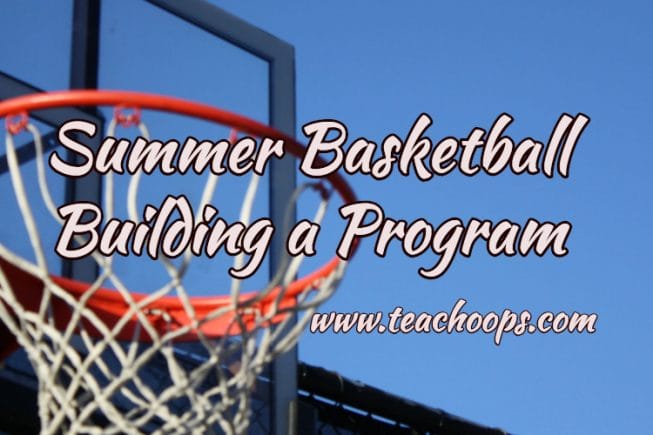
by 4159987 | May 30, 2018 | Uncategorized
First, I want to say thank you to Coach Collins for asking me to do this Blog for Teach Hoops. Two things you need to know about me is that I am not all knowing, and I am always learning how to better myself as a coach.
Right now at the college, we are just kinda at a wait and see period for some recruits with an attempt to find that gem that went under recruited by the 4 year schools. Yes, I am assistant at junior college in Wisconsin, but before that I coached 5 years as a varsity boys coach and I almost coached every level below that since my coaching journey started in 2005. As I sit typing my Blog in the sun over Memorial Day Weekend, I ponder the question….why are coaches so busy in the summer?
First, I think it’s important to know that all coaches are not busy in the off-season. For example, I consider myself as a college coach to have a lot of free time. But, my position is much different from when I coached Varsity Boys Basketball at the high school level. My current summer commitments reside in help running two youth camps and support supervision for open gyms. But, I know how much work consist in the summer for High School coaches in the summer. And in reality without summer, I think it would be impossible for coaches to function without it. Summer is a time for development, trial and error, and logistics. Here is a list of items I have done in one summer as a head coach.
Join TEACHHOOPS.COM
-
Coach summer league games
-
Support and watch JV summer league games
-
Open and supervise skill sessions 3-4 times per week
-
Plan and Run 3 different youth basketball camps
-
Watch and review 8 different basketball coaching dvds
-
Organize and host summer fundraiser
-
Attend overnight summer tournament with players
-
Coach summer tournament at a local high school
-
Plan fall fundraiser
-
Complete practice schedule for HS program
-
Weekly open gym
-
Plan out special game nights for the season: Goldout, Parents’ night, Throwback Night, and etc
-
Rank and evaluate talent for the upcoming season
-
Plan and meet with youth program board monthly to plan for fall registration, budget, and other agenda items
-
Facilitate 10,000 Shot Club
-
Host HS Summer Camp
-
Diagram and review old sets for all situations
-
Try and tweak new sets, defenses, offenses with team opportunities
-
Meet with High School staff weekly
-
Plan and organize online shoe and apparel stores for upcoming season
Wow! I forget how much I did in the summer for preparation for the upcoming season. The question you really asking is why? Winning is hard work, and frankly my tenure at my previous job had only small moments of success. I worked harder than most of my players. Personally, I saw more growth in the youth program with future players coming up the ranks in next the 5 years. But, building a program takes time and making the right decisions through the journey. The worst decision I made was not facilitating the workload to others to provide more time for my own team. My advice to young coaches is create a pipeline of people to work under you. Build and maintain positive relationships with other coaches, parents, and community members to support building your program. Your support system comes down to finding individuals that believe in your program and our invested in the program not their child. Again, the process takes time to build a program, which you have to be careful about picking the right job. That is something I can address in a later Blog.
Summer is a period of time for coaches to eliminate clutter during the season. It’s impossible to do the items above plus coach your team during the season. It would be overload. I feel the many of items on my list provide clarity and direction for the season to come. You can learn about your players and how they respond to certain offense and defensive schemes. The regular season has not enough for trial and error and building your identity. 10 practices and your competing in your first game.
Finally, coaching isn’t a full-time job that pays the bills unless you make it to the big time. I currently still teach 5th grade and coach other sports as well. Without using summer, I believe no one could function during the regular season, unless your single and retired. Please email with questions regarding my blog at jacobjaysteger@gmail.com.
JOIN Teachhoops.com
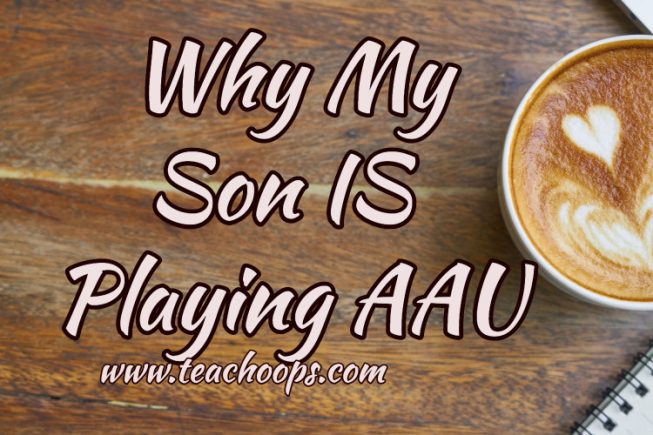
by 4159987 | Apr 5, 2018 | Uncategorized
This is one of many letters I received about the video and podcast I did concerning my son not playing AAU and summer basketball. I thought I would share
Steve,
Appreciate your views on this and agree with much of it. However a few observations:
I train my son and his skill development has exploded in the last few years. But, as you know, there are tons of kids who can “kill a drill” but can’t perform when there’s 10 guys on the court. When you have defensive pressure and lots of decision-making in a game situation, those skills can all of a sudden look a lot different. You just can’t simulate that environment in the quiet of a gym while developing skills. I know every good trainer tries to develop an athlete’s skills while doing “game-like” drills. But it is just not the same. Actual “games” must be played and it’s becoming really hard to find them outside of the AAU tourney scene.
In AAU ball, my son has learned “toughness” that he never had before, and would have never developed, in a training session in any kind of drill. There’s a clock, there’s a scoreboard, there’s fans, there’s referees, and there’s personal “pride” at stake. When he was getting beat up in an AAU game, he either had to fight back or get crushed. He chose to fight back and it has served him so well. He hasn’t turned into an aggressive maniac, but acquired just the right amount of toughness and aggressive mentality that will enable him to play high school basketball. I guarantee he would not be in the same place at this moment without AAU basketball. (He’ll never be a college recruit, but he setting himself up to have a ton of fun playing HS basketball.)
It’s really difficult to supplement skills training with “games” without having a place to actually play games. You and I know there aren’t a lot of parks or gyms that young athletes use to play meaningful “pickup” games that aren’t tied to their schools. We’ve tried playing in the local clubs and the games are mostly garbage for development purposes. Please don’t take this personally, but being a father who is a head coach gives your son access to a gym and I’m only assuming a place where players can get together to play decent pickup games (if WIAA allows, which I believe it does) during the summer. Not everyone has that.
I do agree that AAU travel is ridiculous. I myself coach a boys AAU team and my HS daughter plays AAU and I see that the competition 1 hour away is not substantially different than competition 4+ hours away. I also agree it’s way more games in a weekend than necessary. But of course, the tournaments are making money and they aren’t going to set up tournaments where you only play 2-3 games — which in my opinion would be plenty to supplement skill development.
AAU is ridiculous for kids under 12 years of age (and maybe that’s too young). The most physically mature kids dominate and nothing real productive gets done an AAU format for those young kids. But parents are feeling good that their kid “played AAU”.
I assume the birth of AAU must have been to get the very best players exposure for college. And it probably then trickled down to younger and younger age groups.
Bottom line — I think there’s value in AAU but I think it’s overhyped. At the same time, in order to become a better basketball player, it takes more than reps in the gym. Those skills have to be tested in a game format. I played DI college baseball and there was plenty of guys who hit .300+ in “batting practice” but in a game, for some it was a completely different story. It’s all a “balance” (skills practice + games) which I know is what your message is all about.
Thanks for making your video and providing quality content on Teachoops.com !!!
Regards,
Concerned Father
JOIN Teachhoops.com
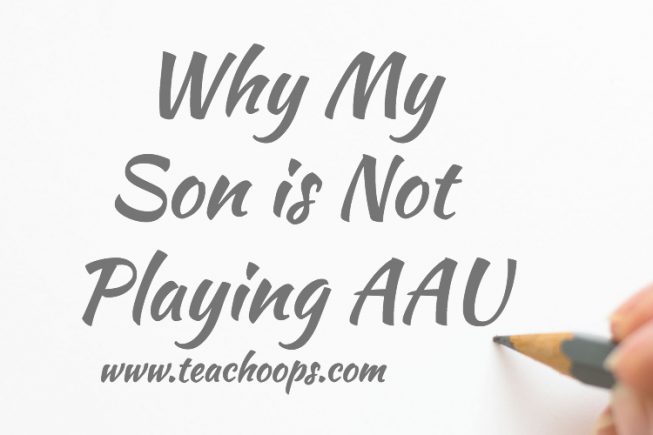
by 4159987 | Mar 29, 2018 | Uncategorized
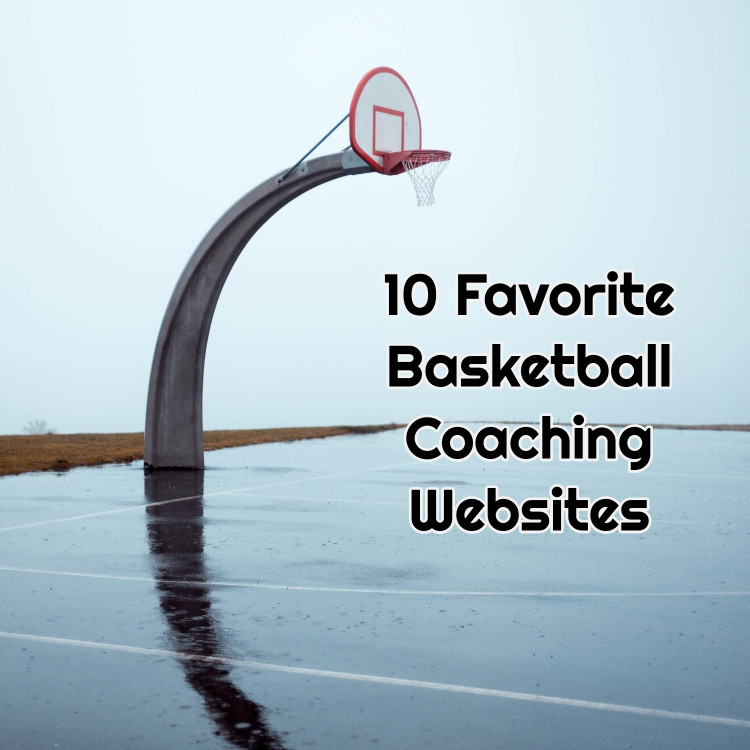
by 4159987 | Nov 8, 2017 | Uncategorized
Coaching Websites
Brought to you by teachhoops.com
I didn’t make this list into a top 10 per se, because I’ve used all these sites multiple times. At the same time, I do have favorites on the list depending on what I’m looking for. Most of the time I search, it’s for drills. Occasionally, I’ll search for an area we’ve struggled (a certain zone press, sets off of a certain man-to-man defense). These sites reflect that perspective.
Teachhoops.com: I have to start with my site. I started in 5 years ago to give back to coaches who were looking to win more game, in less time with a fun mentor. It is a full mentoring site that is valuable resource for coaches at any level. Weekly newsletter, mini-lessons. full length coaching videos, online community, office hours and much more…14 day free trial. Check it out today you will not be disappointed
FIBA Coaching Online: Excellent website with drills and plenty of “international” views of the game. Contains videos to drills and plays. We’ve used several of the defensive drills in our practices. I’m a huge fan of the basketball exercises page as well as their “Basketball for Younger Players” free downloadable book.
Coaches Clipboard: Website feels a little clunky, but the information available is almost overwhelming. I’ve used this a ton for different types of drills to give some variety to our workouts. We have our base drills, and we work on other drills as needed based on our team that year. This site is a great resource to find drills that you hadn’t thought of or ways to adapt drills you regularly use.
FunctionalBasketball: This is a site with some pay material, but I’ve used it for the blog posts and maybe the most underrated portion “quotes”. We start every practice with a quote or a Bible verse (I coach at a Lutheran school). That quote is our focus for the day and in part a larger focus for the week or part of the season we’re at. The drills are great, but the quotes are my favorite part of the site.
HoopThoughts: I don’t know if I have ever used this site for drills; I’ve used it a ton for concepts and knowledge, however. The blog is run by A+M coach, Bob Starkey. Starkey blogs about concepts, motivation, and other odds and ends. Truly a great read for coaches and parents alike. Share this blog with your parents to start a season. I encourage you to check out the topics “culture” “leadership” “motivation” and “team building” some of my favorite blogs some from these sections.
Hoopscoop: I linked this to the basketball plays section because it’s my favorite portion of the site (last updated with March Madness plays). There are a lot of great one hitters in here that can be built into your offensive schemes. The site includes stories, drills (hasn’t been updated since 2014) and updated clinic notes.
Teachhoops.com: A full mentoring site that is valuable resource for coaches at any level. Yes I mentioned this earlier in the list but it is the ONE stop shop for every basketball coach
YouTube: Looking for something quick and don’t have time to search or want more than just a diagram? Check YouTube for tons of videos to individual instruction or offensive/defensive concepts with a video. We’ve used YouTube after games or practices to quickly see what we can find; it’s kind of like Wikipedia to me. Find a base of knowledge then explore it further using other websites. Be aware, however, of the flash individual instructional videos with all the and-1 moves that don’t do anything for you on the court. Steer clear!
If looking for Basketball “stuff” make sure to check out HoopsKing
JOIN Teachhoops.com
by 4159987 | Sep 26, 2017 | Uncategorized
Failing has never been so fun.
I pen these words while sitting in 92-degree weather, watching the worst soccer I have seen in my life. Players stand flat-footed, in packs, unmoving, with no position play, passing, cutting, or moving of any planned sort. Instead, kids smash the ball with their feet as hard and wild as they can kick, then run there to do the same thing. “Defense” is piling the team’s worst kids together en masse to stand in front of the goalie box. My wife made a brilliant comment to me (shared below). But, first, to basketball…
Is today’s cry for ‘fun’ in youth sports a cover for weak coaching, and low parental expectations? Is fun today’s Loser’s Limp? where we pretend we COULD have done better, but for the fact that winning doesnt matter? By “fun” do we really mean that we want no pressure placed upon us as parents and coaches, and a guarantee that, above all else, our kid will never lose?
It may come as a shock to some, but EVERY game ever invented has had as it’s very basic, core objective to win. Every board game, every table game, every card game, every video game, and yes, every sports game, is designed to be won. But, it seems, in today’s youth basketball.
AAU is going the way of Rec League. It used to be that “fun” was spoken of in Rec League, where kids do little and are praised for it. “Everyone is a winner,” the banner said. But in the past 5 years travel basketball has gone the way of Rec League, with its same emphasis on casualness, not keeping score, occasional practices, everybody playing, and so on. AAU is now following suit, such that only the so-called “Elite teams” is where the real sport of basketball is found. Many AAU clubs now hold so-called tournaments for their own teams. As a sport, it appears to me we are pushing “competitive” ball upward to only the highest, smallest top-most part the large pyramid of youth basketball.
But, why?
Back to my wife. As we both watched the horrific soccer together, we heard the coach keep yelling out banal cheerleader-esque cliches like, “Good Hustle!” “Keep Trying!” and “Go Hard!” It was silly, even to his own standing, untrained players (who got killed in the game). My wife looked at me, and said, “From now on our daughters will play competitive sports, or nothing. This is teaching them nothing. I dont want to watch this anymore.”
Of the 100s of things required of youth coaches today, let me be among the few to say, publicly, that “making the game fun” is not one of your requirements. It is not the judge’s job to make obeying the law fun; it is not the surgeon’s job to make triple bypass surgery fun, and; it is not my job to somehow make this sport fun for your child. To be sure, none of us want Hitler as our kids’ coach. So let us quit painting this false extreme as a rallying cry for demanding “fun” above all else.
Fun is subjective; one person cannot make something fun for someone else. Consider our teenagers, for example, who define “fun” as sitting in a room with friends, texting friends who are NOT in the room. I dont get it; that is definitely not fun for me. Fun is also fleeting, fickle and impossible to define. The purpose of life is not for others to somehow guarantee your level of fun. This is true of teachers, coaches, principals, officials, and of employers. Instead of seeking fun an end of sport, I believe as coaches we should teach that fun is IN the sport. For example, working hard is fun, mastering a skill of play is fun, trying is fun, learning is fun, being part of a team is fun, practicing is fun, sweating is fun, and, yes, being pushed, made, broken down–then rebuilt better–to WIN–this is really, really fun!
Bob Knight cared nothing about fun. Neither did John Wooden. Both won 13 national championships, and raised up incredibly mature, responsible men. Instead each push incredibly hard, in very different coaching styles, to get at player perfection, high standards, personal responsibility, and above all else, team. Today, what are we about as coaches in terms of our standards of expectations and excellence in youth ball?
I am tired of watching crappy play, allowed in the name of our kids supposedly having fun.
Coaches (parents!), we are fun-ning our sport to death.
Terry Boesch is a teacher in Martinsville, IN (home of John Wooden), and also coaches girls basketball. Feel free to email him at terryboesch@gmail.com, or call/text at 317-643-6042
by 4159987 | Aug 15, 2017 | Uncategorized








